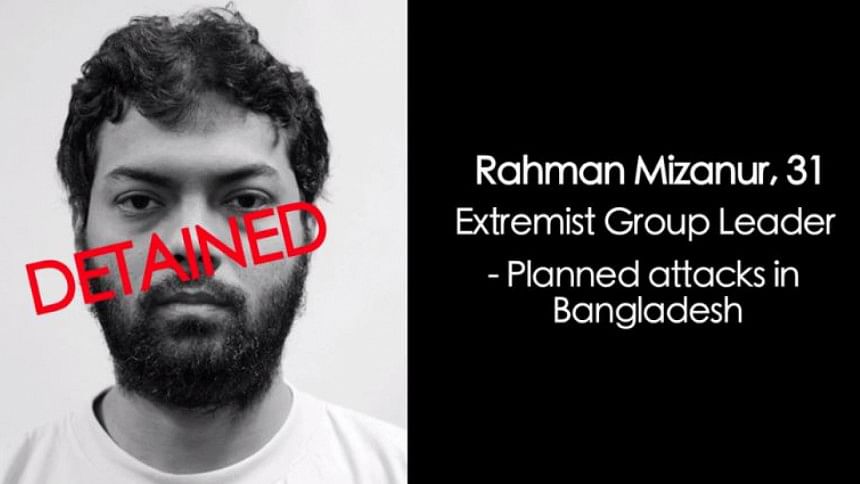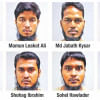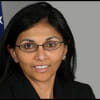How Islamic State in Bangladesh began

Nine years ago, Rahman Mizanur arrived in Singapore to work.
The Bangladesh national worked here on and off, and last returned here in December last year.
He was a draftsman in a local construction company, on an S Pass.
Also READ: 'They formed cell, met in parks, shared radical contents'
Significantly, the 31-year-old had also become deeply radicalised.
A month after he arrived, he began recruiting followers among his countrymen working here, with the help of material linked to terror groups Islamic State in Iraq and Syria (ISIS) and al-Qaeda.
By March, he had set up a clandestine group called Islamic State in Bangladesh (ISB). The group had an organisation structure with specific roles for its members: leader, deputy leader, and persons in charge of duties like finance, the Home Affairs Ministry said yesterday.
READ more: US urges Bangladesh for effective, quick probe
They had a target list that included Bangladeshi government and military officials.
Later that month and in early April, Rahman and seven of his cell members were arrested under Singapore's Internal Security Act.
The ministry said each of the men had worked in Singapore for cumulative periods of between three and 10 years. They were employed in the construction and marine sectors, and were not known to be radicalised when they first arrived here.
Investigations by the Internal Security Department found that Rahman's radicalisation began around 2013, when he read radical material online. ISIS had yet to be declared, but a wave of radicalisation was sweeping through societies like Bangladesh, influencing a minority of individuals like himself.
It likely made him more susceptible to becoming radicalised when a fellow Bangladeshi shared ISIS propaganda material with him on his return home last year.
By then, ISIS had attracted some 30,000 foreign fighters to its ranks and inspired brutal terror attacks in France, Turkey, Belgium and elsewhere. ISIS had also produced propaganda material in various languages to convince Muslims that it is their duty to take up arms and fight for its self-declared caliphate.
The ISB members bought the idea and had intended to join ISIS as foreign fighters. But they turned their sights on Bangladesh as they felt it would be difficult to travel to Syria.
Taking issue with the fact that their country's government was democratically elected, they wanted to overthrow it with force and set up an Islamic state under ISIS' yoke.
The ISB members contributed money for buying firearms. But they had yet to act on their plans to procure them, the ministry said.
They were probably mindful that the authorities and wider community would be more watchful after the arrest and deportation of 27 radicalised Bangladeshi workers were announced in January this year.
Hence, they met largely in open parks or fields to share radical propaganda and videos, which deepened the radicalism of members.
At least two more ISB members are in Bangladesh, and Home Affairs and Law Minister K Shanmugam told reporters yesterday that Singapore is in close contact with the authorities in Dhaka.
While the ISB's meetings have been disrupted, concerns remain whether there are more radicalised individuals yet to be found out.
National Development Minister Lawrence Wong said: "This is not an issue about foreign workers, or about Islam. It is about a minority of people who have chosen to distort religion, spread their own extremist ideology, and use terror and violence to achieve their goals."
Jurong GRC MP Rahayu Mahzam added that while people should be vigilant, "we should not paint all the Bangladeshis with the same brush".
"Some may be disgruntled with issues back home but the majority here are law-abiding and want to earn an honest living. They contribute to the development of our infrastructure and economy," she said.
Rahayu suggested working more closely with such communities to get them to "also be our eyes and ears on the ground, to look out for potential threats".

 For all latest news, follow The Daily Star's Google News channel.
For all latest news, follow The Daily Star's Google News channel. 





Comments